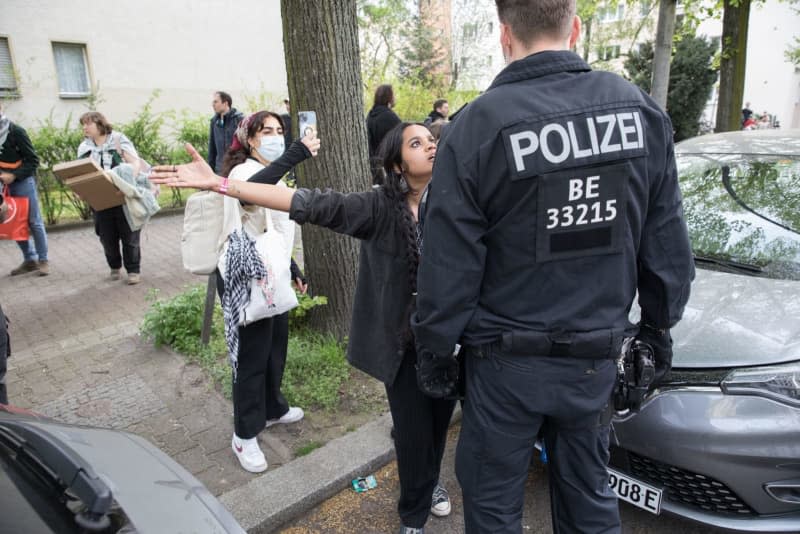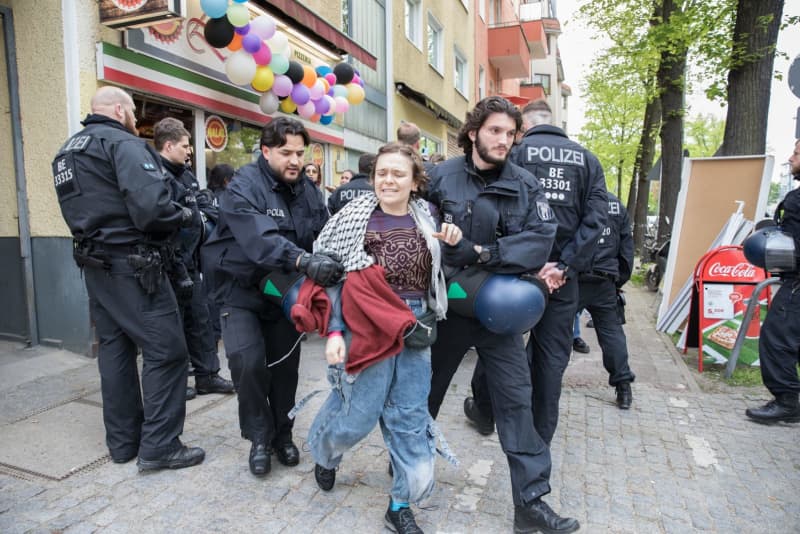Following the cancellation of a controversial “Palestine Congress” planned for three days in Berlin, the city’s police were on Saturday prepared in force for spontaneous protests.
Police on Friday broke up the pro-Palestinian conference in the Tempelhof area of Berlin and asked some 250 participants to leave the hall just two hours after the event began.
Organizers of the conference had decried Israel’s ongoing military offensive in the Gaza Strip, and attacked the German government’s support for the Israeli government.
According to the police, organizers had registered a demonstration of 1,500 people for Saturday against the ban on the event. A police spokesman said the assembly area would be protected accordingly.
Despite a calm night in the capital, the police were out in large numbers to monitor the situation on Saturday, with reinforcements available as needed.
“The number of officers we deploy on Saturday will depend on the situation,” a spokeswoman said in the morning. Originally, around 900 officers were to accompany the second day of the congress.
The reason given by the authorities was a video broadcast of a speech by a man who is banned from political activity in Germany for hate speech against Israel and Jews.
When the man spoke, the police intervened with several officers, cut the transmission and temporarily switched off the power.
According to a police spokeswoman, the authorities saw the danger “that such anti-Semitic, violence-glorifying and Holocaust-denying speeches could be repeated at the event.”
The decision therefore applies not only to Friday, but also to Saturday and Sunday, she added.
Interior Minister Nancy Faeser praised the police’s efforts on X, formerly Twitter.
“It is right and necessary for the Berlin police to crack down on the so-called Palestine Congress. We do not tolerate Islamist propaganda and hatred against Jews,” Faeser wrote.
The police union also called the crackdown by officers a “strong signal in the direction of those who exploit our democracy or doubt the assertiveness of the capital’s police force.”
“Anyone who wants to utilise our democratic opportunities must also comply with regulations and laws,” regional head Stephan Weh said in a press release.

